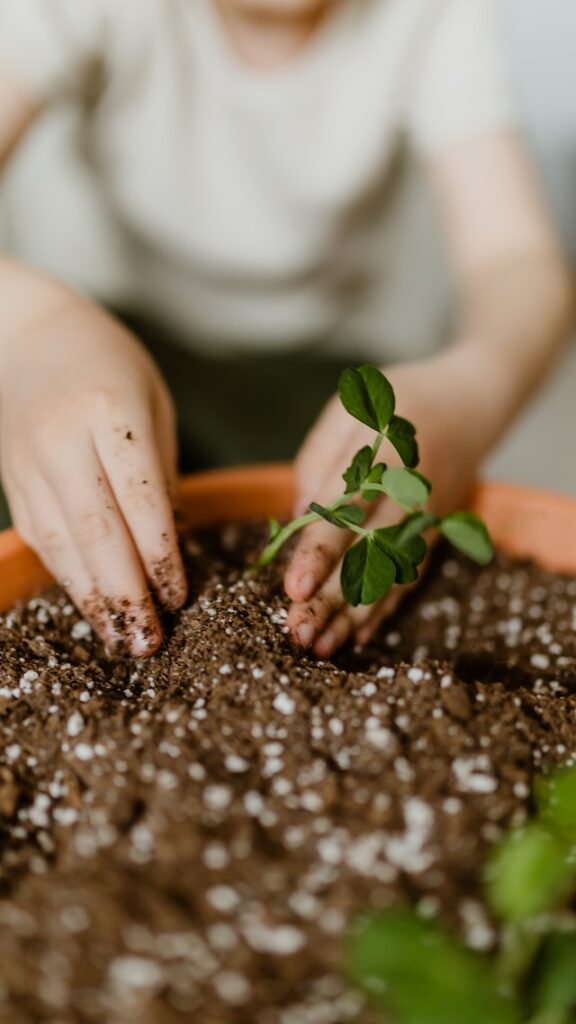14 Simple Ways to Live a More Sustainable Lifestyle
Living a sustainable lifestyle has become increasingly important as our planet faces environmental challenges.
Making small changes in our daily routines can have a significant impact on the environment, and there are many ways to live a more sustainable lifestyle.
In this article, we will explore 14 ways that you can make simple changes in your daily routine to live a more sustainable lifestyle.

Understanding Sustainability
Living a more sustainable lifestyle means making choices that are environmentally responsible and socially equitable. It involves being mindful of the impact your actions have on the planet and taking steps to reduce your carbon footprint.
Sustainability is all about balancing economic, social, and environmental factors to ensure that we meet our current needs without compromising the ability of future generations to meet their own needs. It’s about finding ways to live in harmony with nature, rather than exploiting it for short-term gain.
To live sustainably, you need to be aware of the resources you use and the waste you produce. This includes everything from the food you eat to the products you buy.
You should aim to reduce your consumption of non-renewable resources, such as fossil fuels, and increase your use of renewable resources, such as solar power.
Sustainability also involves making choices that are socially responsible. This means supporting businesses that prioritize fair labor practices and ethical sourcing. It means being mindful of the impact your choices have on marginalized communities and taking steps to promote social justice.
It’s not about making drastic changes overnight, but rather taking small steps towards a more sustainable lifestyle. Every little bit helps, and by working together, we can create a more sustainable future for all.

The Importance of a Sustainable Lifestyle
Living a sustainable lifestyle is becoming increasingly important in today’s world. Sustainable living means making choices that are good for both you and the environment. It is about reducing your carbon footprint, conserving natural resources, and minimizing waste.
By making small changes in your daily life, you can contribute to a healthier planet and a better future for generations to come. Here are some reasons why sustainable living is so important:
Protecting the Environment
The environment is facing numerous challenges such as climate change, deforestation, air and water pollution, and loss of biodiversity.
By adopting a sustainable lifestyle, you can help protect the environment and reduce your impact on the planet. You can do this by reducing your energy consumption, using eco-friendly products, and recycling.
Saving Natural Resources
Natural resources such as water, oil, and forests are finite and need to be conserved. By living sustainably, you can help reduce the demand for these resources and contribute to their preservation.
You can do this by reducing your water consumption, using public transport, and choosing products made from sustainable materials.
Improving Your Health
Living sustainably can also have a positive impact on your health. By reducing your exposure to harmful chemicals and pollutants, you can improve the quality of the air you breathe and the water you drink.
You can also improve your physical health by adopting a more active lifestyle and eating a healthy diet.
Saving Money
Sustainable living can also help you save money in the long run. By reducing your energy consumption and water usage, you can lower your utility bills. You can also save money by choosing products that are made to last, reducing the need for frequent replacements.
Setting an Example
By living sustainably, you can set an example for others to follow. You can show your friends, family, and community that small changes can make a big difference. You can inspire others to adopt a more sustainable lifestyle and contribute to a healthier planet.

Ways to Live a More Sustainable Lifestyle
Living a sustainable lifestyle is not only good for the environment, but it can also save you money and improve your overall quality of life.
Here are some ways you can make small changes in your daily routine to live a more sustainable lifestyle.
Reducing Energy Consumption
Reducing your energy consumption is an easy and effective way to live a more sustainable lifestyle. Some simple ways to reduce your energy consumption include:
- Turning off lights and electronics when not in use
- Using energy-efficient light bulbs
- Unplugging electronics when not in use
- Using natural light instead of artificial light when possible
- Adjusting your thermostat to conserve energy
Sustainable Transportation
Transportation is a significant contributor to greenhouse gas emissions. Making sustainable transportation choices can help reduce your carbon footprint. Here are some ways to make your transportation more sustainable:
- Walking, biking, or taking public transportation instead of driving
- Carpooling or using ride-sharing services
- Investing in an electric or hybrid vehicle
- Planning your trips to minimize driving time and distance
Waste Management
Proper waste management is essential for a sustainable future. Here are some ways to manage your waste in a more sustainable way:
- Reduce your consumption of single-use plastics
- Recycle paper, plastic, glass, and metal
- Compost food waste and yard waste
- Donate or sell items you no longer need instead of throwing them away
Sustainable Eating Habits
Making sustainable food choices can have a significant impact on the environment. Here are some ways to make your eating habits more sustainable:
- Eat a plant-based diet or reduce your consumption of animal products
- Buy local and organic produce
- Avoid food waste by planning meals and using leftovers
- Grow your own food or support community gardens
Water Conservation
Water is a precious resource, and conserving it is essential for a sustainable future. Here are some ways to conserve water:
- Fix leaky faucets and toilets
- Install low-flow showerheads and faucets
- Use a rain barrel to collect rainwater for watering plants
- Water your lawn and garden in the early morning or late evening to reduce evaporation
Green Gardening
Gardening can be a sustainable and rewarding hobby. Here are some ways to make your garden more sustainable:
- Use organic fertilizers and pest control methods
- Plant native species to support local biodiversity
- Use rainwater or graywater for watering plants
- Compost yard waste and food scraps

Sustainable Shopping
Making sustainable shopping choices can help reduce waste and support ethical and eco-friendly businesses. Here are some ways to shop more sustainably:
- Buy secondhand or vintage clothing and furniture
- Choose products made from sustainable materials
- Bring your own reusable bags, containers, and water bottles
- Support local businesses and farmers markets
Eco-Friendly Cleaning
Cleaning products can contain harmful chemicals that can harm the environment and your health. Here are some ways to clean your home in a more eco-friendly way:
- Use natural cleaning products or make your own using vinegar, baking soda, and other natural ingredients
- Avoid using disposable cleaning wipes and paper towels
- Use a reusable mop and microfiber cloths instead of a disposable Swiffer
Sustainable Fashion
The fashion industry is one of the most polluting industries in the world. Making sustainable fashion choices can help reduce waste and support ethical and eco-friendly businesses. Here are some ways to make your fashion choices more sustainable:
- Buy secondhand or vintage clothing
- Choose clothing made from sustainable materials like organic cotton or recycled polyester
- Support ethical and eco-friendly fashion brands
- Repair or upcycle clothing instead of throwing it away
Supporting Local Businesses
Supporting local businesses can help reduce your carbon footprint and support your local economy. Here are some ways to support local businesses:
- Shop at local farmers markets and grocery stores
- Buy from local artisans and craftsmen
- Eat at local restaurants and cafes
- Support local community events and initiatives
Investing in Renewable Energy
Investing in renewable energy can help reduce your carbon footprint and support a sustainable future. Here are some ways to invest in renewable energy:
- Install solar panels on your home or business
- Participate in community solar programs
- Choose a green energy supplier for your electricity
- Invest in renewable energy stocks and funds
Promoting Biodiversity
Biodiversity is essential for a healthy and sustainable ecosystem. Here are some ways to promote biodiversity:
- Plant native species in your garden
- Avoid using pesticides and herbicides
- Support local conservation organizations
- Learn about and advocate for policies that support biodiversity
Education and Advocacy
Educating yourself and advocating for sustainable policies and practices can help create a more sustainable future. Here are some ways to educate yourself and advocate for sustainability:
- Read books and articles about sustainability
- Attend sustainability conferences and events
- Join

Benefits of a Sustainable Lifestyle
Living a sustainable lifestyle has numerous benefits for both you and the environment. Here are some of the benefits you can enjoy by adopting a sustainable lifestyle:
Environmental Benefits
By living sustainably, you can reduce your carbon footprint and help protect the environment. You can reduce your waste, conserve water, and reduce your energy consumption, which can help reduce greenhouse gas emissions and slow down climate change.
Additionally, you can help protect natural resources like forests, oceans, and wildlife habitats, which are all essential for maintaining a healthy ecosystem.
Health Benefits
A sustainable lifestyle can also have positive effects on your health. By eating more plant-based foods, reducing your meat consumption, and choosing organic and locally sourced food, you can improve your health and reduce your risk of chronic diseases.
Plus, by using natural and non-toxic products, you can reduce your exposure to harmful chemicals and pollutants, which can have a significant impact on your overall well-being.
Financial Benefits
Adopting a sustainable lifestyle can also lead to financial benefits. By reducing your energy and water consumption, you can save money on utility bills.
Choosing to buy second-hand or repairing items instead of constantly buying new ones can also help you save money in the long run.
Social Benefits
By living sustainably, you can also contribute to the well-being of your community. By supporting local farmers and businesses, you can help strengthen the local economy and create job opportunities.
Also, by participating in community initiatives like clean-ups and tree plantings, you can build connections with your neighbors and work together towards a common goal.
Overall, living a sustainable lifestyle can have a positive impact on the environment, your health, your finances, and your community. By making small changes to your daily habits, you can make a big difference in the world.

To Sum It Up
Living a more sustainable lifestyle is not only good for the environment but also good for your health and wallet. By making small changes in your daily routine, you can reduce your carbon footprint and contribute to a more sustainable future.
Here are some key takeaways to help you live a more sustainable lifestyle:
- Reduce your meat and dairy consumption and opt for plant-based alternatives.
- Avoid single-use products and plastics by using reusable items such as cloth bags and water bottles.
- Use natural cleaners to reduce the amount of plastic packaging and chemicals being introduced to the water system.
- Spend more time reading, playing games, or doing other activities that do not require energy.
- Reconsider your nutrition and opt for groceries upon the need to reduce food waste.
- Reduce water waste by investing in a low-flow showerhead and turning off the tap while brushing your teeth.
- Use energy-efficient appliances and turn off lights and electronics when not in use.
- Walk, bike, or take public transportation instead of driving alone.
- Support local farmers and businesses to reduce your carbon footprint.
- Grow your own food and compost your waste to reduce your reliance on industrial agriculture and waste disposal systems.
- Choose sustainable clothing made from organic, recycled, or upcycled materials.
- Reduce your use of paper products by using digital alternatives and recycling paper products when possible.
- Use renewable energy sources such as solar panels and wind turbines to power your home.
- Educate yourself and others on the importance of sustainability and advocate for policies that support a sustainable future.
Remember, living a more sustainable lifestyle is a journey, not a destination. Start with small changes and build upon them over time. Your actions can make a difference, so keep up the good work!





